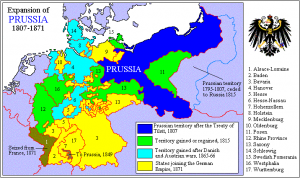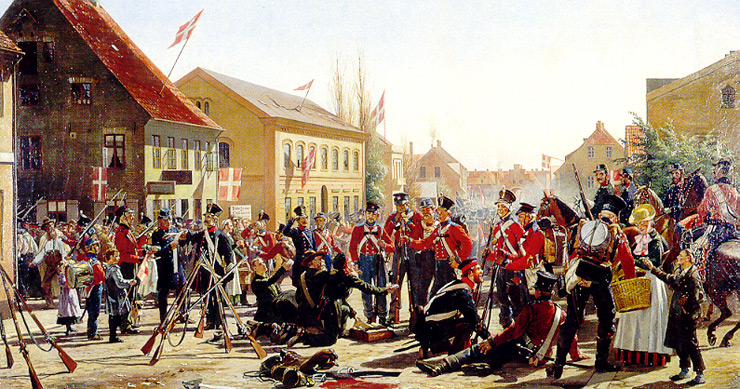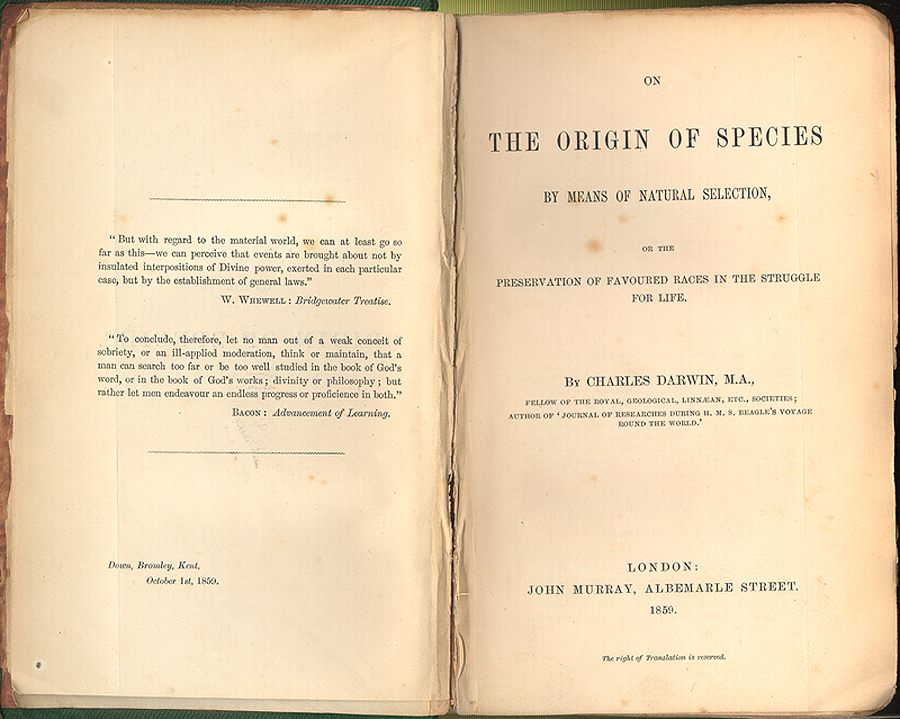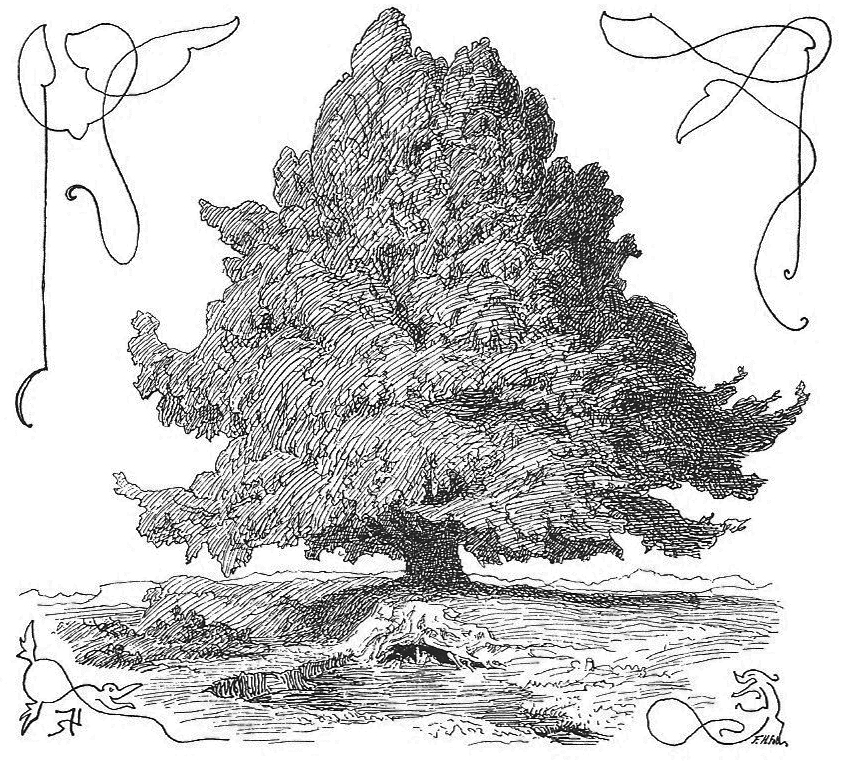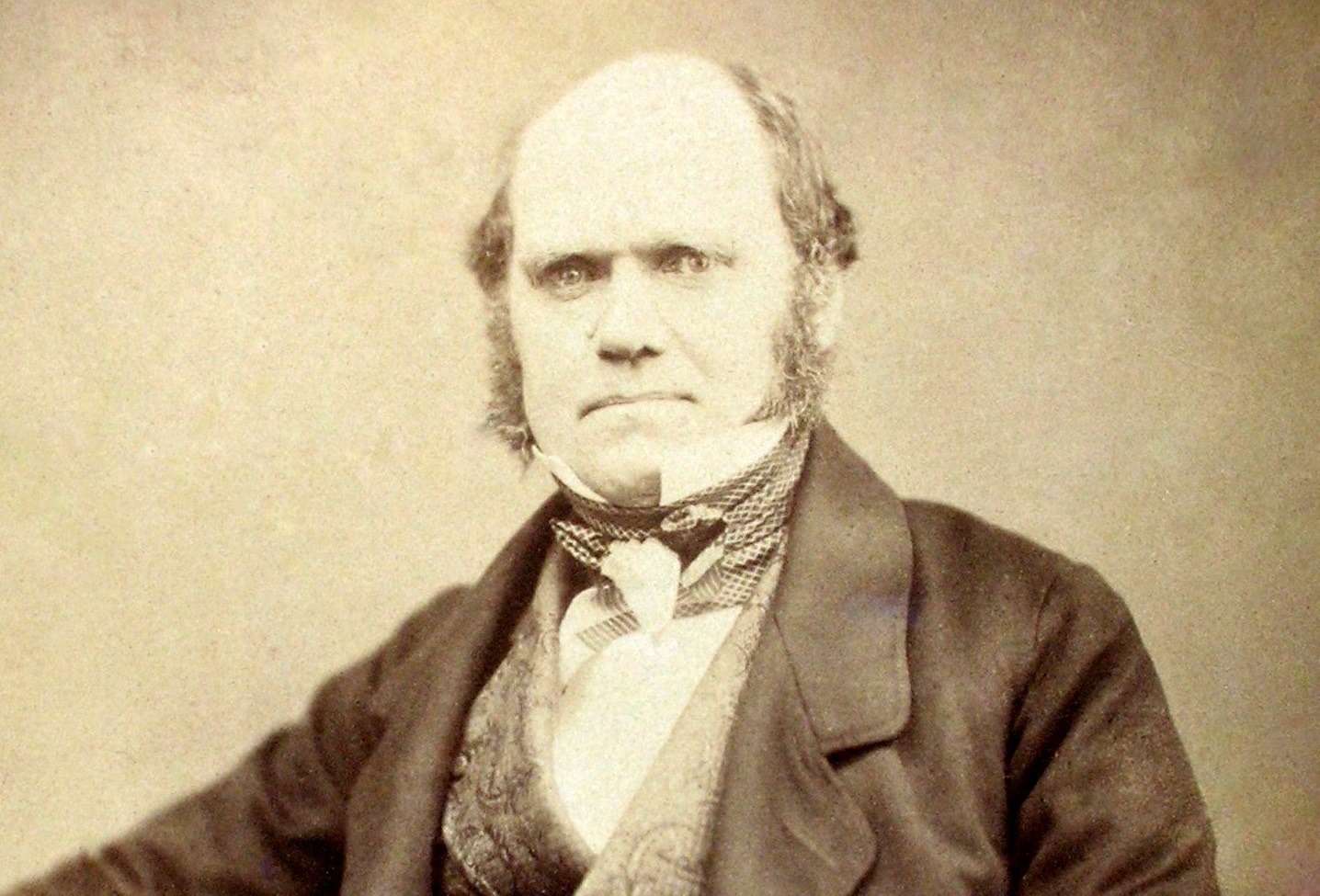
1850 AD to 1870 AD, Psalm 139: Darwin.
This site was first built in French (see www.147thgeneration.net). The English translation was mainly done using « google translation ». We have tried to correct the result of this translation to avoid interpretation errors. However, it is likely that there are unsatisfactory translations, do not hesitate to communicate them to us for correction.
(for that click on this paragraph)
Summary
This generation of the 1850s and 1860s.
According to our count, this generation is the 139th generation associated with Psalm 139. It is in this Psalm 139 that we therefore find an illustration of the facts of this generation.
This generation is At the crossroads between the hope left by the Enlightenment movement and the birth of racial antisemitism that will swell until the drama of the twentieth century.
However, this generation is off to a good start: « the slow emancipation of European Jews » continues.
Likewise, the « rise of the metropolises » enables Jews to play a major economic and intellectual role.
To this generation, “The situation of the Jews in the world” seems rather to be moving in the right direction; whether in Europe or the Americas.
The Enlightenment movement has gradually enabled the strong “Weakening of Religious antisemitism” which has less and less hold.
All of these promising advances for Jews are largely thwarted by “the emergence of racial antisemitism”, fueled largely by the sciences which put forward the concept of race as applied to men.
“From Malthus to Darwin” the foundations for a new vision of humanity emerge. Darwin’s theories are misguided to lay the foundations for “Social Darwinism”, which facilitates the birth of the “Aryan myth”.
It is indeed the gestation of « isms » (nationalisms, communism, Nazism …) of the twentieth century that we are witnessing this generation, « isms » of which we already know what the consequences will be for the Jews in the twentieth century.
Among these “isms”, antisemitism already widely fed to this generation by German intellectuals.
Talk
The slow emancipation of the Jews
This generation of the years 1850 and 1860 is enclosed between the revolutions of 1848 and the first conflict between France and Prussia of 1870, to which will succeed the two world wars.
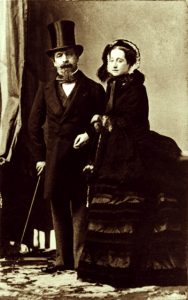
This generation is for France that of the Second Empire which puts in power (Emperor in 1852) Napoléon III after the overturn of December 2, 1851. Although decried, it brings France into the industrial age resulting in a strong economic boom. The Jews of France take full advantage of the economic and industrial growth of the Second Empire and still fully benefit from the effects of emancipation.
Following the failure of the 1848 revolutions, Prussia succeeded in uniting some of the German states to the detriment of Austria. The German unit will be completed by Bismarck at the end of this generation which will seal it via the conflict with France in 1870.

The emancipation of the Jews obtained since 1791 in France takes some time to be obtained in the German sphere. In Germany it will be one of the consequences of the German reunification initiated by Bismarck, the emancipation is decided in 1867 and is actually completed in 1871. In the Austro-Hungarian empire, it is acquired in 1867, as a result of the crises suffered by Habsburg empire between 1848 and 1866, especially the defeats against the French in Magenta and Solferino (June 1859) that pushed the Emperor of Austria to more liberalism.
The slow emancipation of Jews in the German sphere is generating a second wave of immigration to the United States from Europe, mainly from Germany.
The rise of metropolises


Whether in Europe or North America, the industrial and economic boom is accelerating the attraction of large cities. This generation of the 1850s and 1860s saw the birth of metropolises. In the second half of this century the populations of American cities like Chicago or Detroit or European cities like Paris, London, Vienna or Berlin see their population increase appreciably.

These cities are remodeled by new rules of urbanism or by the necessities of modernism such as those related to transport or new amenities. These metropolises, whose access is facilitated, are then powerful forces of attraction for the Jews who establish themselves there and multiply their presence.
It is also for these renewed Jewish communities a chance of economic success and a more visible integration in the image of the construction of prestigious and imposing synagogues [1] : the synagogue of Oranienburgstrasse in Berlin (completed around 1865), that of the Victoire (completed in 1875) in Paris, that of the Dohany street in Pest (completed in 1859, Pest with Buda will be merged in 1873 in Budapest).
The situation of the Jews in the world
Since the absorption of part of Poland, the Jewish community of Russia is one of the most important in Europe, it still undergoes this generation of many bullying and vexations on the part of the power. The antisemitism of the Russian people is reflected in many fictitious cases of ritual killings.
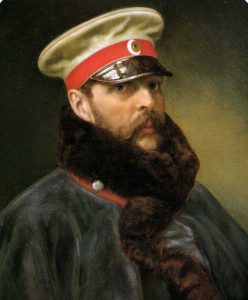
The reign of Alexander II does not change the situation of the Jews of Russia: the liberalism of the years 1855 to 1865 which also aims at improving the situation of the Jews in Russia is unfortunately followed by a period of reaction between 1865 and 1881 which gives Jews in a difficult situation.
Italian unity allows the gradual emancipation of Italian Jews, this unity is completed in 1870 when Emmanuel II conquers Rome.

The Civil War in the United States results in the birth of a powerful country that will soon become the world’s leading military and economic power.
England, which focuses on its economic expansion, particularly with its aims in India and China, avoids confrontation with Prussia in the war of the duchies (1863-1864). For many historians, the decline of England begins with the Duchies war: by renouncing to maintain the balance of power on the continent, England consecrated the supremacy of Prussia, which is confirmed in 1871 with the victory in France.
For the English Jews, a first Bill in 1845 grants them emancipation which is extended to the political framework in 1858.
Emancipation is not relevant throughout Europe, especially in the former territories conceded by the Ottoman Empire, Jews are still subjected to bullying and abuse and pogroms, as in Romania, Greece or Serbia.
On the other hand, in the Maghreb, French influence led to emancipation in Algeria, where Jews became French citizens in their own right in 1870.
It was also [3] the French reaction to the Batto Sfez affair in 1856 (executed for blasphemy) that allowed the Jews of Tunisia to gradually emancipate themselves. They had already benefited from the tolerant attitude of Ahmed Bey (1837-1855) upstream of this affair.
His successor Mohammed Bey (1855-1859) is not insensitive to French pressure; In 1857 he proclaimed the Basic Covenant, formally guaranteeing complete security to all subjects of his states, regardless of their religion, nationality or race, and affirming the equality of the Muslim and non-Muslim in the law.
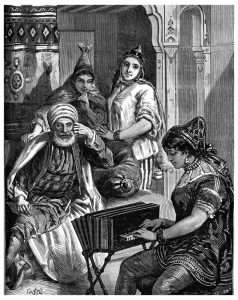
Thus my back or great-grandparents in Tunisia were able to take advantage of this emancipation, initiating a few decades of inter-community fraternal relations before the exile of the Jews of Tunisia started at the end of the 1950s.
In Palestine [4], the Jewish presence is confirmed and facilitated by French influence.
Overall, this generation of the 1850s and 1860s seems to end a long dark time for Jews.

The night seems to be over, it is besides to this generation that Henri Graetz writes and publishes his monumental history of the Jews, from which we take numerous extracts for the illustration of certain psalms. This work is an inventory of past misfortunes of the Jewish people which betrays the hope of the author that a new page is turned and that the future will spare the Jews from all torment.
Unfortunately, we know that this vision is optimistic and that the worst awaits the Jewish people in the next generations. But the worst is intellectually constructed to the present generation.
David, who is the principal author of the psalms and especially the psalm of this generation, was able to see the whole story of the Jews through the night, the part of the night spent – that narrated by Henri Graetz – but also that of the next generations. The author of the Psalms therefore knows that the potential optimism of the Jews of this generation for the future is out of place.
He therefore recalls at the beginning of this psalm, that the history of the Jews past or future is already known by the Creator, it is the object of the beginning of the psalm of this generation:

- For the conductor. Of David, a song. O Lord, You have searched me out and You know.
- You know my sitting and my rising; You understand how to attach me from afar.
- My going about and my lying down You encompassed, and You are accustomed to all my ways.
- For there is no word on my tongue; behold, O Lord, You know it all.
Weakening of religious antisemitism.
After the destruction of the second Temple by the Romans, pagan people, the future of the Jewish people was established in exile among the nations. In the first phase of exile, Jews were confronted with the competition and mistrust of monotheistic religions born from Judaism: Christianity and Islam. This competition has brought its lot of misfortunes to the Jews for long generations during which the Jews were considered by the peoples in which they lived as renegades not recognizing the good word, that of the Gospels or the Koran.
But apart from that, the common filiation of the peoples, all from the same couple, Adam and Eve, was recognized by the nations of Christianity or Islam. they did not seek to physically eliminate the Jews, even though death was often at the rendezvous for the Jews in this first part of exile, that during which the people were under the influence of faith.

Since the advent of the Enlightenment, the segregation of part of the people according to their beliefs has become inept. This marked the end of a certain antisemitism with religious connotations. At least for Christians, because on the Moslem side, there has not been until today equivalent of the movement of Enlightenment.
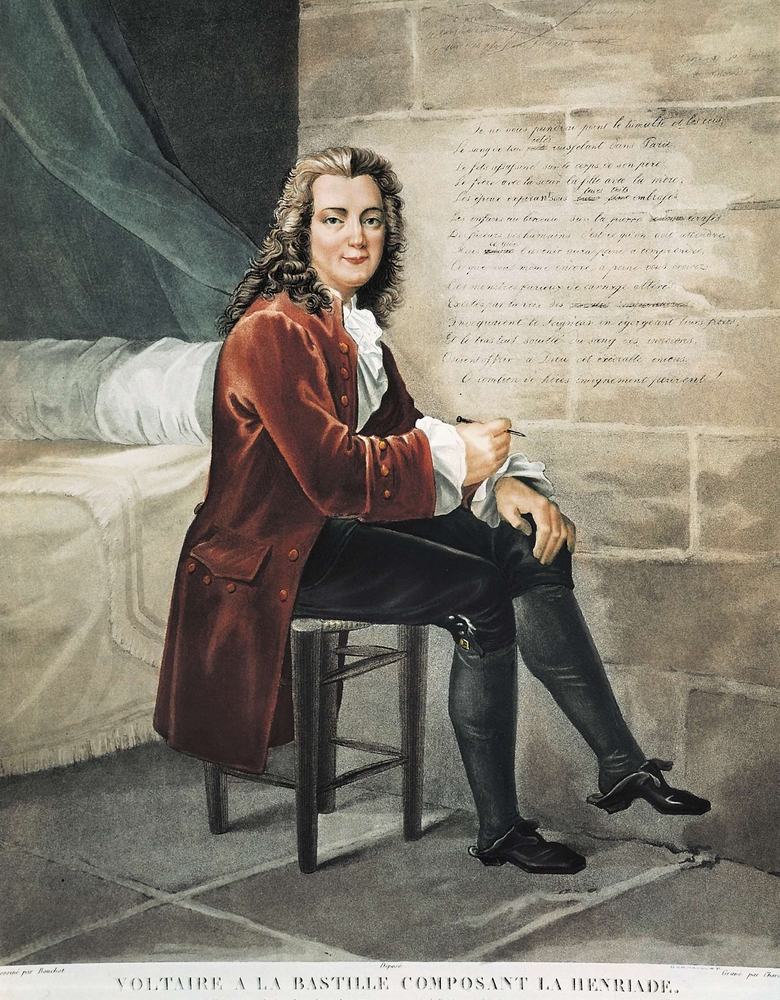
However, hatred towards the Jews has not faded so far in Europe, Christian land and beneficiary of the fallout of the « Enlightenment ». This hatred is obviously already very marked in Voltaire who is one of the forerunners of anticlericalism and Enlightenment. Even the Freemason societies which have largely contributed directly or indirectly to the emancipation of the Jews now take their distance with the Jews like the lodges of the German sphere especially from 1880 during the rise of antisemitism in Germany.
However, this hatred so far could not find a basis equivalent to the religious foundation of Christian religious antisemitism. The development of science to this generation remedies this point, assimilating the Jews no longer to the followers of a belief but to the representatives of a species or a race.
Emergence of racial antisemitism
Racial antisemitism then takes over from religious antisemitism.
This is the observation of Leon Poliakov:
- As long as [6] the Jews actually lived under a regime of exception, they were considered, in good theological doctrine, as a full participant in human nature, the curse on them being only an expiation, from the point of view of the Christian anthropology. It was when they were emancipated, and were able to freely mix with the great bourgeois society, that the curse became, under the terms of a new so-called scientific anthropology, a biological difference or inferiority. Thus the despised caste became an inferior race, as if the old « rouelle » or conical hat was now engraved, « internalized » in their flesh, as if the sensibility of the West could not do without the certainty of a distinction which, once erased the « visible signs » identifying the Jew, became an « invisible essence ».
Science and races
Also:
By the mid-nineteenth century [7], ideas were maturing and combining, soon to become the bedrock of dangerous and hawkish racial theories, leading to the terrible events of the Second World War.
In 1787, Herder had already exalted the Germans, according to him historic barrier to the penetration of the Barbarians in Europe. […]
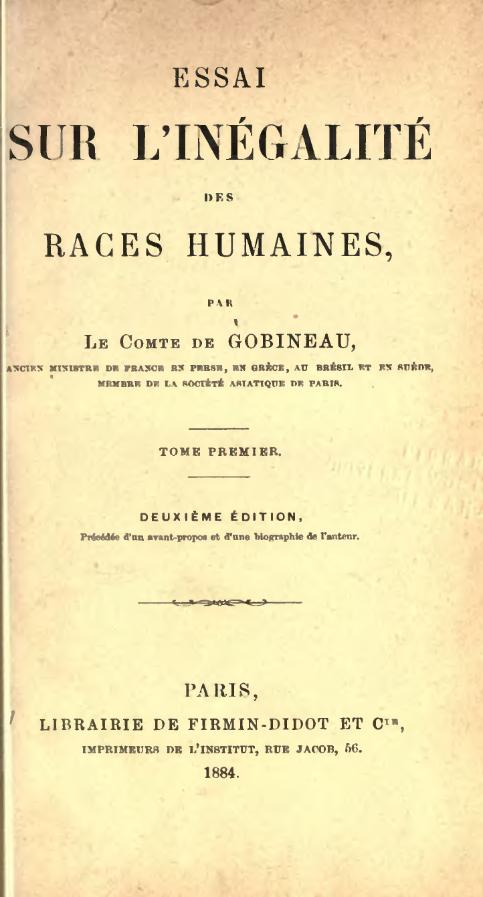
In the years 1853-1855, Arthur de Gobineau, through his famous « Essay on the Inequality of Human Races », saw race as the key to a generalized understanding of history, past, present and future. He claimed that the crossing of races presided over a dangerous process of degeneration that would destroy the white race. The Aryan, who had created this civilization, would see it die in degeneration. His racial theories did not yet have a specific anti-Jewish element: if the Jews were a race in decline, it was precisely because their frequent crosses with other races had them, like the Aryans, condemned to degeneration. Became a friend of Wagner and a regular Bayreuth, Gobineau was consecrated, after the fact and without any specific responsibility, alleged champion of anti-Semitic racism. […]
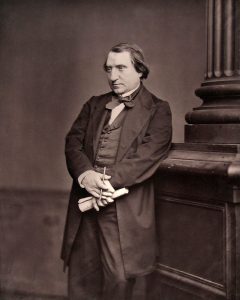
- Gobineau was not alone in France: Ernest Renan was a zealous propagandist of the Aryan myth, but identified perfectly the natural recipients of such a message:
[…] The French spirit does not lend itself to ethnographic considerations; France believes very little in race. All this could only be born in a people like the German people, who still hold to their primordial roots and speak a language which has its causes in itself. […]
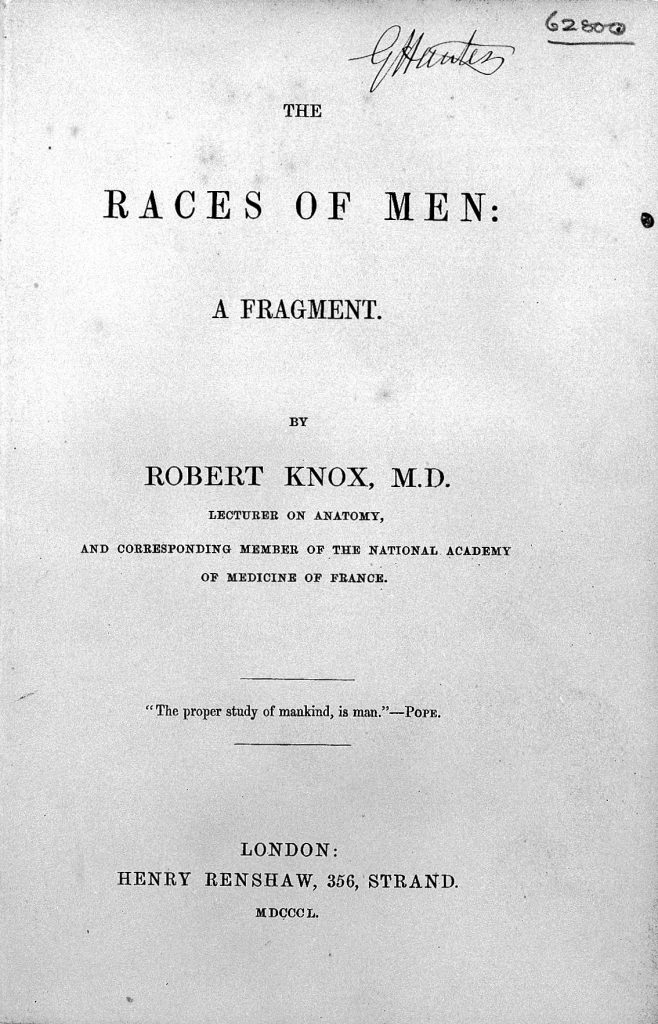
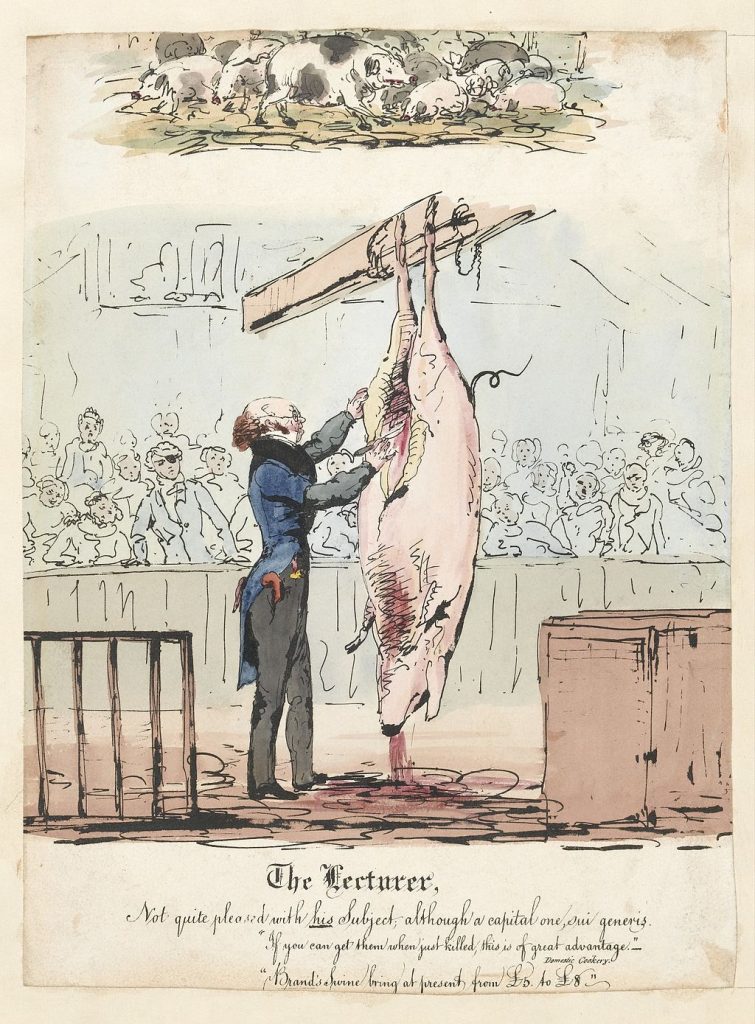
- Still in the middle of the nineteenth century, the race debate, in every sense of the word, was also alive in England. In 1850, Robert Knox (1789-1862) published « The Races of Men », based on a slogan: race is everything and civilization depends on it. If Gobineau held theblacks for his enemies Knox chose the Jews, considered the strongest expression of human ugliness. He was certain that the Aryans had the privilege of possessing all the virtues, and the Jews all the perversions of the middle class. But in England, too, opinions were numerous and divergent, and James Hunt (1833-1869), founding president of the anthropological society, preferred to persecute blacks.
- The great English imprint in this European debate was Darwinism. Darwin was not racist, but some of his conceptions – natural selection or the selection of the fittest – pleases many racist thinkers who did not hesitate to appropriate them, even if Darwin privileged the environment on heredity.
Faced with this new preeminence of science to the detriment of the divine, the psalmist reaffirms the divine precedence at a time when it seems questioned by scientists:

- From the rear and the front You encompassed me, and You placed Your pressure upon me.
- Knowledge is hidden from me; it is hard, I cannot attain it.
- Where shall I go from Your spirit, and where shall I flee from Your presence?
The economic and industrial development of the nineteenth century created new wealth and creates fortunes for some, but with the left-back driven to misery or poverty.
From Malthus to Darwin
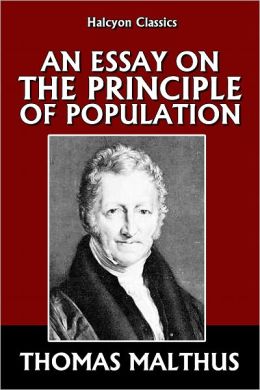
While Judaism and the religions that come from it advocate the help of the poor to survive, Malthus (1766-1834) in the early nineteenth century considers that population growth, if not halted , surpasses rapidly the increase of resources, which can only cause disasters.
Malthus therefore advocates to prevent the growth of populations, and, contrary to the teaching of monotheistic religions to stop all help to the needy. This theory which indirectly advocates the survival of the best to the detriment of the weak inspired Darwin (1809-1882) in the definition of the bases of natural selection. This influence of Malthus is confirmed in the introduction of « The Origin of Species », the first edition of which takes place in 1859.
Thus the principle of elimination of the inept is introduced by Darwin:
- All organized beings [8] struggle to seize vacant places in the economy of nature; therefore, if a species of any kind does not change or develop as fast as its competitors, it must be eliminated.
And also :
- Natural selection [9] acts only for the conservation of advantageous modifications; each new form occurring in a sufficiently populated locality, tends, therefore, to take the place of the less perfected primitive form, or other less favored forms with which it competes, and it ends up exterminating them. Thus, extinction and natural selection are constantly in concert.
As well as :
- The extinction [10] of whole species and groups of species, which has played such an important part in the history of the organic world, is the inevitable consequence of natural selection; for the old forms must be supplanted by new and improved forms.
And:
- The result [11] of this war of nature, which results in famine and death, is therefore the most admirable fact we can conceive, namely, the production of higher animals.

Darwin who could have become a pastor is « creationist » at the dawn of his first journey considering that the creations of nature meet the purpose of a superior intelligence. At the end of his life, « evolutionist » convinced, he rejects religious and religion. However, in his works, certain mysteries of creation lead him to express himself in a more nuanced way:
- The comparison [12] between the eye and the telescope naturally comes to mind. […] Do we have the right to assume that the Creator brings into play intelligent forces similar to those of man?
Darwin remains convinced that the creation is not made ex nihilo, it makes a derivative way to Genesis by considering the pre-existence of a first couple at the origin of each species, refusing the idea of parallel creations:
- The question [13] of the unity or plurality of centers of creation differs from another question: do all individuals of the same species descend from a single pair, or from a single hermaphrodite, or, as admitted by some authors, of several individuals simultaneously created? […]
- I readily admit the previous existence of many islands, now buried under the sea, which could serve as a relay for plants and animals during their migrations. […] When we fully admit, as we will one day, that each species has emerged from a unique cradle, and that in the long run we will come to know something more precise about the means of dispersion of beings. organized, we will be able to speculate with more certainty on the old extension of the lands.
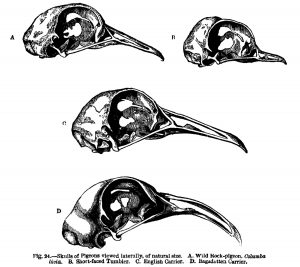
Darwin makes this observation by considering that the creatures that populate the earth, the airs and the oceans around the planet come from the same pair spawner. Without being able to explain at this stage the multiple presence of the descendants of the same couple as those descendants of the pigeon.
Thus Darwin, as expressed in the preceding passage, finds no immediate rational explanation for the presence of the descendants of one of these original couples in territories that do not communicate with each other separated by impassable oceans. Including throughout the evolution phase of the species.
This mystery is evoked by the psalmist in the following of the psalm of this generation by the evocation of the omniscience of God through the earth, the waters and the air:

- If I ascend to the heavens, there You are, and if I make my bed in the grave, behold, You are there.
- [If] I take up the wings of dawn, [if] I dwell at the end of the west,
- There too, Your hand will lead me, and Your right hand will grasp me
Darwin, if he tries to explain how a slow and long evolution has allowed the appearance of the different representatives of the species that inhabit the earth today and has made many disappear, does not try to explain how life has could appear from nothingness or how could the passage from inert matter to living matter be realized.
Thus in the same way that he admits for each species the offspring from the same couple without trying to find out how this initial couple appeared, Darwin does not try to solve the enigma of life:
- I begin [14] to find that I have no more intention to search for the origin of the mental faculties than those of the life.
In echo, the psalmist indicates that while the theory of evolution can rationally explain many questions about the diversity of life on earth it does not question the role of God in it.
This is what the following passage in the psalm of this generation recalls to counteract in advance any extension of this theory that would lead to the negation of the original creation of the divine order:

- I said, « Darkness will darken me, and the night will be as light about me. »
- Even darkness will not obscure [anything] from You, and the night will light up like day; as darkness so is the light.
- For You created my reins, You covered me in my mother’s womb.
- I shall thank You for in an awesome, wondrous way I was fashioned; Your works are wondrous, and my soul knows it very well.
- My essence was not hidden from You, when I was made in secret, I was formed in the lowest parts of the earth.
- Your eyes saw my unformed body, and on Your book they were all written; days have been formed and one of them is His.
Social Darwinism
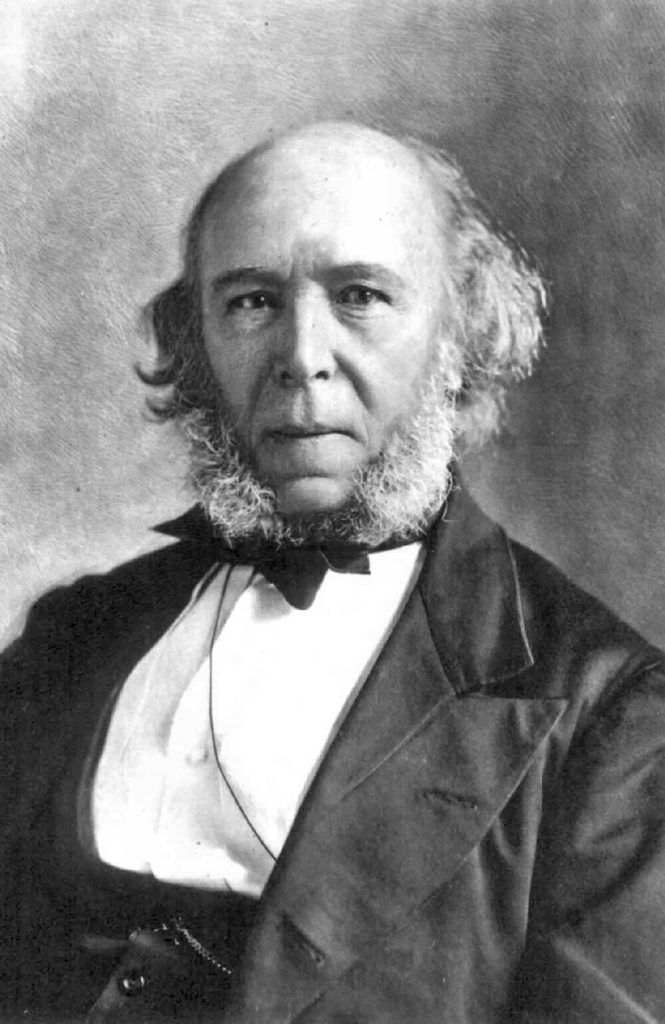

The theory of Darwin will unfortunately be extended to men by two characters of this generation including one of Darwin’s own cousins:
- English engineer [15] of the industrial period, Herbert Spencer is the creator of philosophical evolutionism, which he develops into a « synthetic system », from 1860, and which will circumnavigate the world during the last third of XIXth century. […] He is the father of the very improperly named « social Darwinism », a crude application of the principle of selection-elimination to human social groups assimilated to organisms. He embodies the philosophy of the ultra-liberal competitive, individualist, anti-state and dogmatically hostile to any assistance to the poorest.
In order to react to dangerous deviations based on his theory of evolution, Darwin will publish in the early 1870s other works in which he extends the theory of evolution to man by trying to demonstrate that for man, evolution replaces the logic of extermination with the social instincts of self-help.
This laudable effort will not succeed in thwarting the advances of Social Darwinism, or even fuel it because of oriented interpretations. The developed theory that evolution for mankind has given way to social instincts promoting mutual aid and assistance to the dispossessed is an optimistic view that will soon show its limits when the destructive madness of the twentieth century emerges.
Thus, despite Darwin’s ultimate efforts, natural selection, a simple scientific hypothesis, is quickly becoming one of the foundations of the new social rules in opposition to those of monotheistic religions:
- The idea that natural selection [16], as a universal law of evolution, must necessarily also apply, with all its cruelly eliminatory consequences, to the functioning and historical development of human societies permeates the West since the years following the publication of « On the Origin of Species ». […]
- The extraordinary complexity of the relations between eugenics and social Darwinism in the different countries which have been the theater of the diffusion of the ideas born of modern biology is such that no absolutely constant rule can be formulated to define a truly stable doctrinal homogeneity. the exception maybe from the basic schema: Natural selection fault> Degeneration> Artificial selection. In the United States, which is at the same time the territory of the massive export of Spencer’s hyper-liberal social Darwinism (which at least did not include at the origin of its founder the prescription of eugenic or racist measures) and a a land of multiracial immigration, slavery and segregation, the sterilizing eugenics of institutional activists such as Charles B. Davenport (1866-1944) and Henry H. Laughlin (1880-1943) is rife for a long time that begins around 1904. The « weak-minded », the carriers of diseases declared « hereditary » and the poor are the targets of this terrible movement.
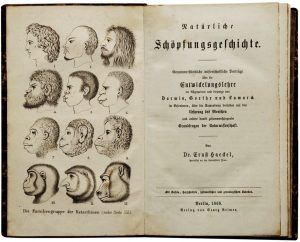
Similar practices are developing in the Scandinavian countries. In Germany, the great figure of Ernst Haeckel (1834-1919), naturalist Lamarckian founder of « National Sozial-Darwinismus », mingles with the eugenics and the « fight for civilization » (Kulturkampf) engaged by Bismarck, develops in his works of popularization the themes of euthanasia and « Spartan selection », which will be at the heart of the key motives of Nazism, that will develop in their laboratories « racial hygienists » Alfred Ploetz (1860-1940), Ernst Rüdin ( 1874-1952), Eugen Fisher (1874-1967) and many others.


- The Nazi measures of human sterilization will unfold between 1933 and 1940, and the program of elimination of Jews, considered to be dysgenic, will be applied to them.
- (In France, the most famous eugenicist, the doctor) Alexis Carrel (1873-1944), Nobel Prize in 1912 […], is the partisan declared in 1936, Nazi measures of biological purification of the race and promoter of the use of gas chambers for the « humane and economic » treatment of the problem posed to society by certain delinquents and mentally ill persons.
The Aryan myth
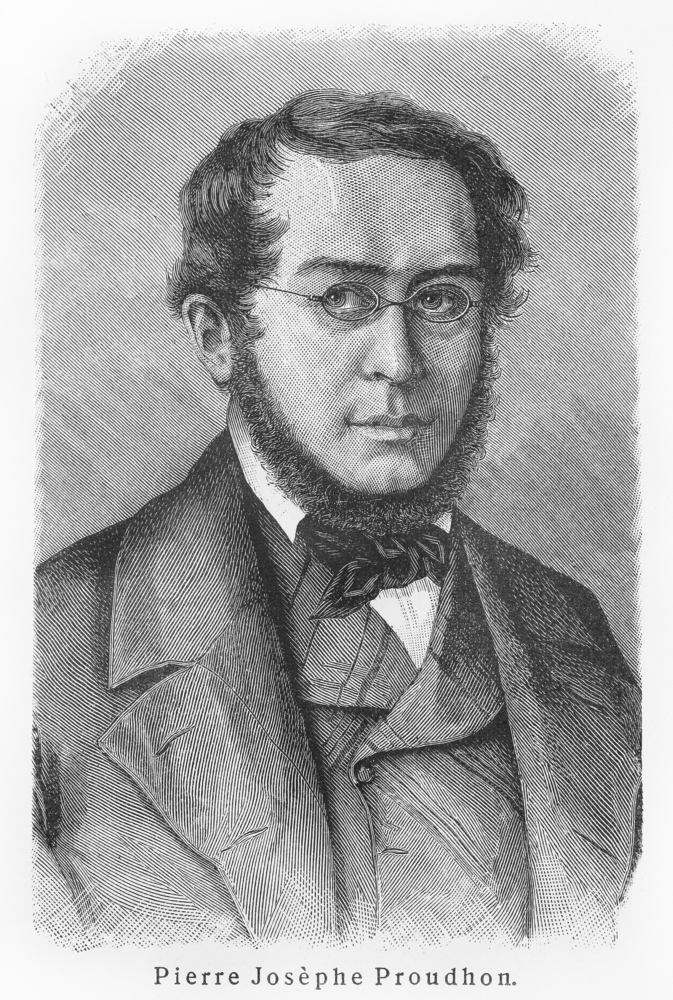
Proudhon, author of the formula: « property is theft », one of the first theoreticians of socialism, who will have exchanges with Karl Marx before he distanced himself, also rushes into racial anti-Semitism.
The racist antisemitism that is born in France, as Proudhon demonstrates, also takes root in Germany:
- In the perspective [17] of racist anti-Semitism, the German obsession with the purity of blood leads to a condemnation of Jews even in the absence of a specific hatred, and alongside the type of international anti-Semitism whose mental universe is peopled with Jews, one sees appear the German type of the patriot subjectively non-anti-Semitic, but which is hostile to them because it professes the myth of the race. […]
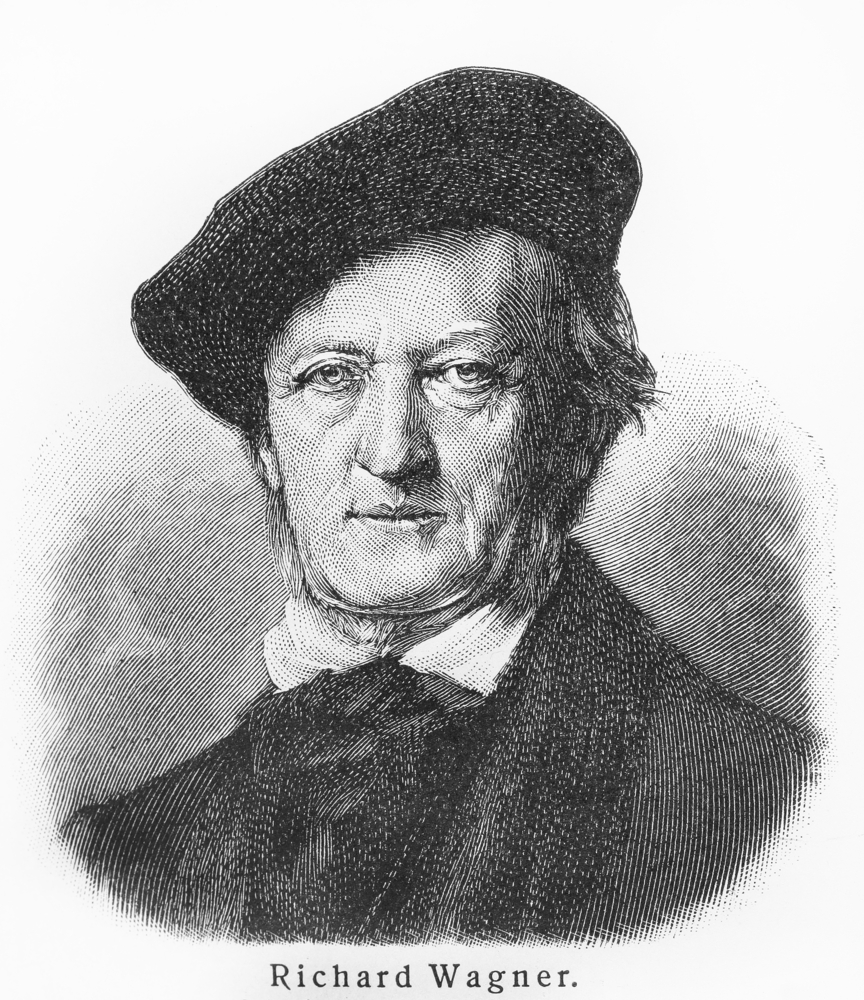
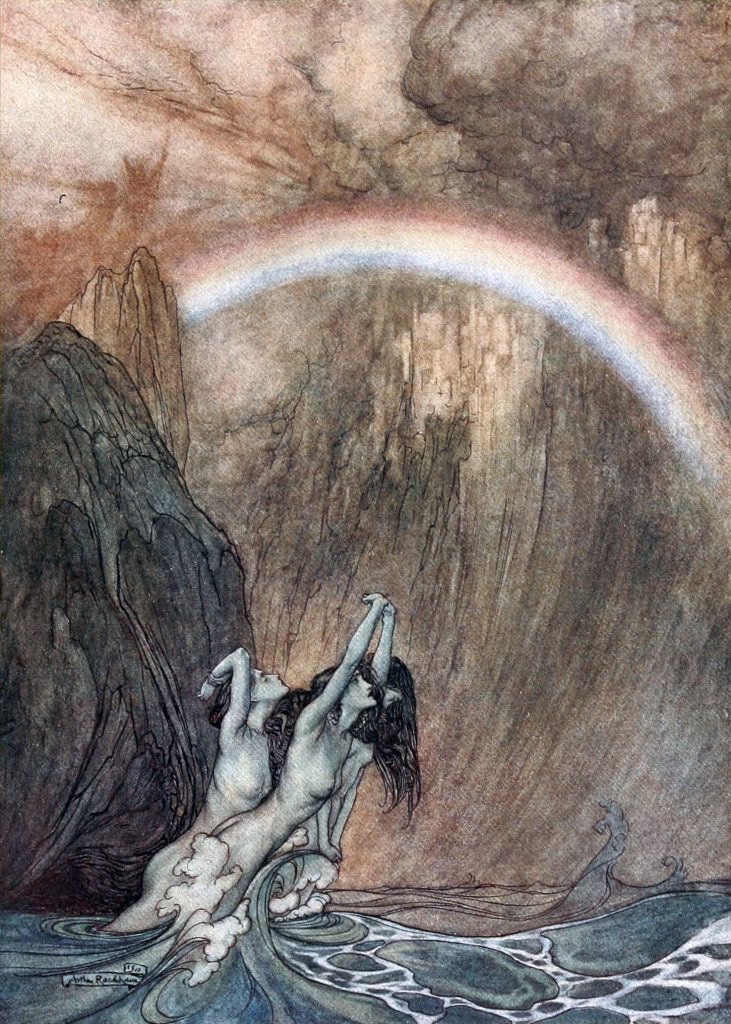
Many artists wanted to be prophets, but Wagner was the only one to be recognized as such by his country, and by the West. […] His anti-Semitic rage came to light in 1850, when Wagner was thirty-seven. Previously, he tells us himself, he had campaigned for the emancipation of the Jews. […] In his Swiss exile (1849-1851), he meditated on Germanic and Germanoman myths. From now on, he will set the speculations of philologists and metaphysicians to music with the repercussions we know. As Mr. Georges Dumézil recalled in 1939: « Wagnerian names, Wagnerian music, animated German combatants from 1914 to 1918 in hours of sacrifice and failure even more than in hours of triumph. The Third Reich did not have to create its fundamental myths … « . But before breathing life into these dreams, Wagner will explain his project.

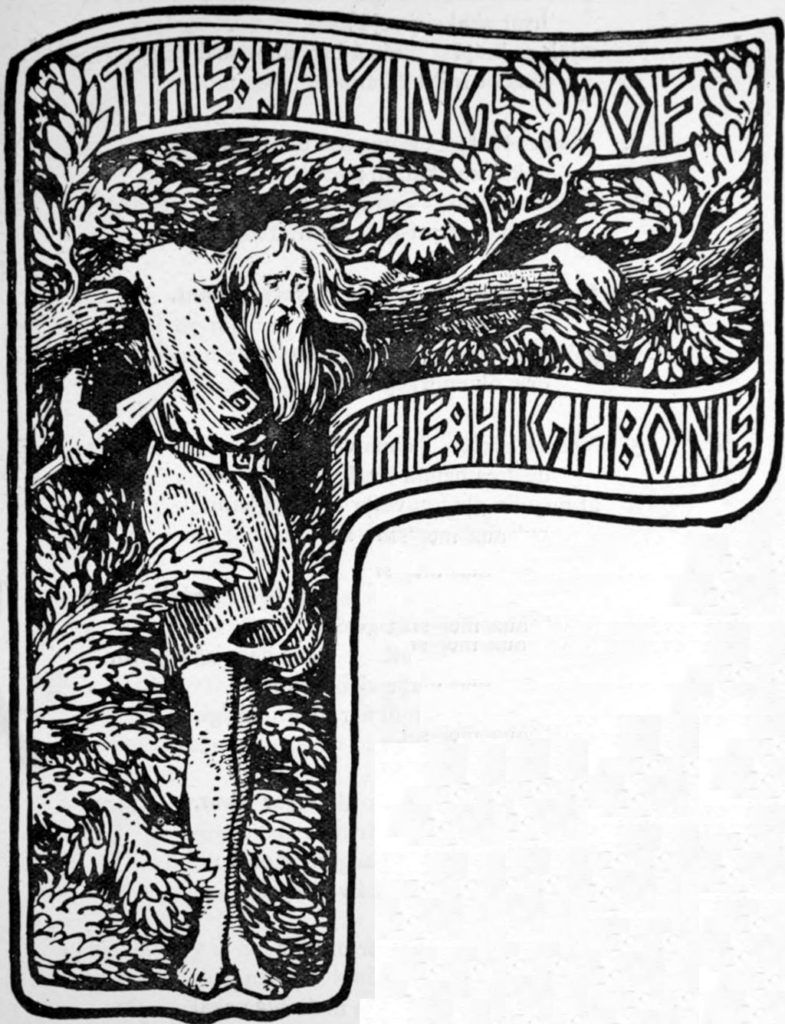
- In the first of his writings, he proclaims that the legend is truer than History and sums up the so-called Aryan theory of the origin of humanity: « It is on these mountains (the Himalayas) that we must seek the primitive homeland of the present peoples of Asia and of all the peoples who emigrated to Europe. This is the origin of all civilizations, all religions, all idioms … « He resuscitates the old god Wotan, or rather, he thinks he finds the God of Christians in him: God the son, let him be note well, rather than God the father:
- « The ultimate abstract god of the Germans, Wotan, did not necessarily give way to the God of Christians; he could even be absolutely identified with him; it suffices to strip him of the sensible attributes with which the different peoples had clothed him, according to their character, their country, and their climate. This primitive, unique, national God, whose different races derived their earthly existence, was evidently the least abandoned: for in him was found, with Christ, son of God, that decisive analogy that he too was dead and was mourned, avenged, as we still come today against Christ on the Jews. Faith and attachment were all the more easily related to Christ, who was recognized as the primitive God. «
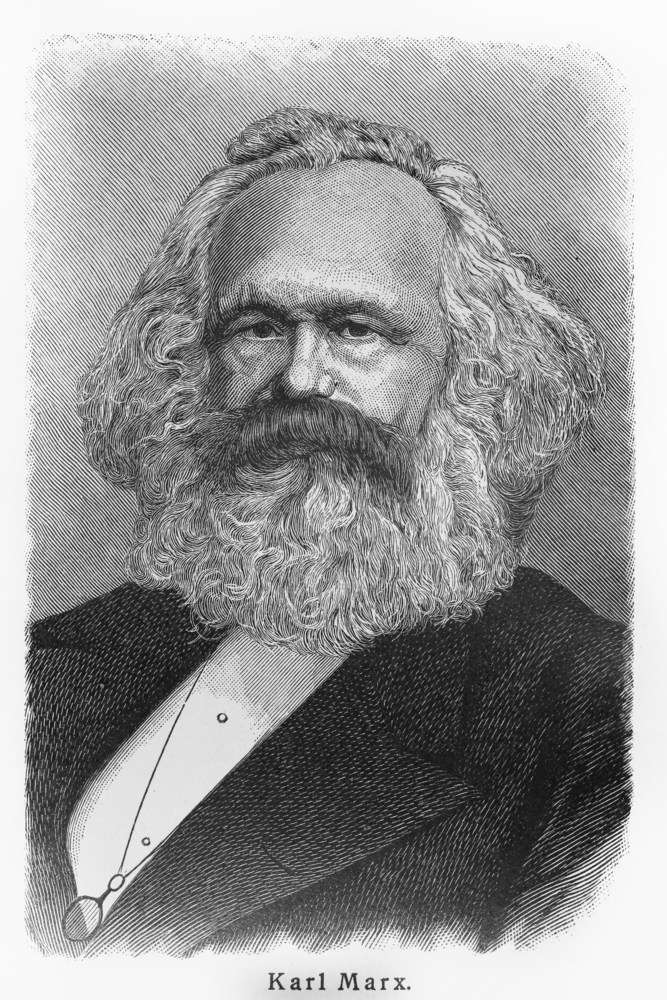
It is also to this generation that Karl Marx, who claims to be an atheist despite his Jewish origins rejected by a virulent anti-Semitism, publishes the first part of « Capital » which lays the foundation for the « class struggle » and the capitalism / communism dichotomy of the twentieth century.
The gestation of the “isms” of the twentieth century.
Thus to this generation, the « isms » of the twentieth century are already in advanced gestation: capitalism with its hardness towards the less fortunate and communism with its extreme application that is Stalinism that will fight any religious spirituality. And of course European nationalisms headed by Nazism. The psalmist can only be concerned about the changing minds that mark this generation and that will transform the twentieth century, which should have been a century of global progress in the century of disasters.
This is what he expresses in the following of the psalm of this generation:

- And to me, how dear are Your friends, O Lord! How great is their sum!
- I shall count them; they are more numerous than sand; I have come to the end, and I am still with You.
One of the preponderant results of this generation is the rise of racial anti-Semitism facilitated by the new « scientific » bases derived from the theory of evolution that make it possible to get rid of biblical stories to create a new story of the gods in which Judaism would be at best a deviated branch of the true original religion.
Thus the new theorists while referring to the Biblical God substitutes for him more « national » gods and by expanding the theories of evolution to the man distinguish between the « bastard » races and the pure races, those whose blood has not been altered, introducing a new purity of blood solely related to the purity of the non-bastardized race. That in particular of the German people supposedly descended from the peoples of the Himalayas and subject to the old gods of the German pantheon anterior to the Christian penetration.
It is to these « men of blood », these wicked, who at once denies divine precedence and above all his teaching of fraternity between peoples and who attaches himself to new concepts of purity of blood to detach himself from other peoples of the earth. , which the psalmist evokes in the rest of the psalm, expressing his hatred for his enemies of a new kind:

- If only You would slay the wicked ! , O God, and men of blood, « Turn away from me. »
- Who mention You with wicked thought; Your enemies took it up in vain.
In fact, the Enlightenment had prefigured the emancipation of the Jews but at the same time they were trying to liberate society from the religious yoke, by anticipation they already initiated racial anti-Semitism to replace the old Christian antisemitism whose effectiveness was called to lessen.
In this field, Voltaire was forerunner:
- In conclusion [19], finally: You (the Jews) are calculating animals, try to be thinking animals. This comparison between the Christian who thinks and the Jew who calculates, anticipates the a priori of racist anti-Semitism, decreeing the superiority of the creative intelligence of the Christians, become Aryans, on the sterile intellect of the Jews. We find the same modern Voltaire when he asserts that the Jews are plagiarists in everything, or when he writes, in the « Essay on the mores »: « We looked at the Jews in the same eye as the Negroes, as a kind of inferior man.
And also :
German intellectuals and antisemitism
Between Voltaire and the present generation, thinkers, and mainly those of the German zone of influence, will take turns denouncing the Jew as belonging to an inferior race sowing in advance the catastrophes of the twentieth century.
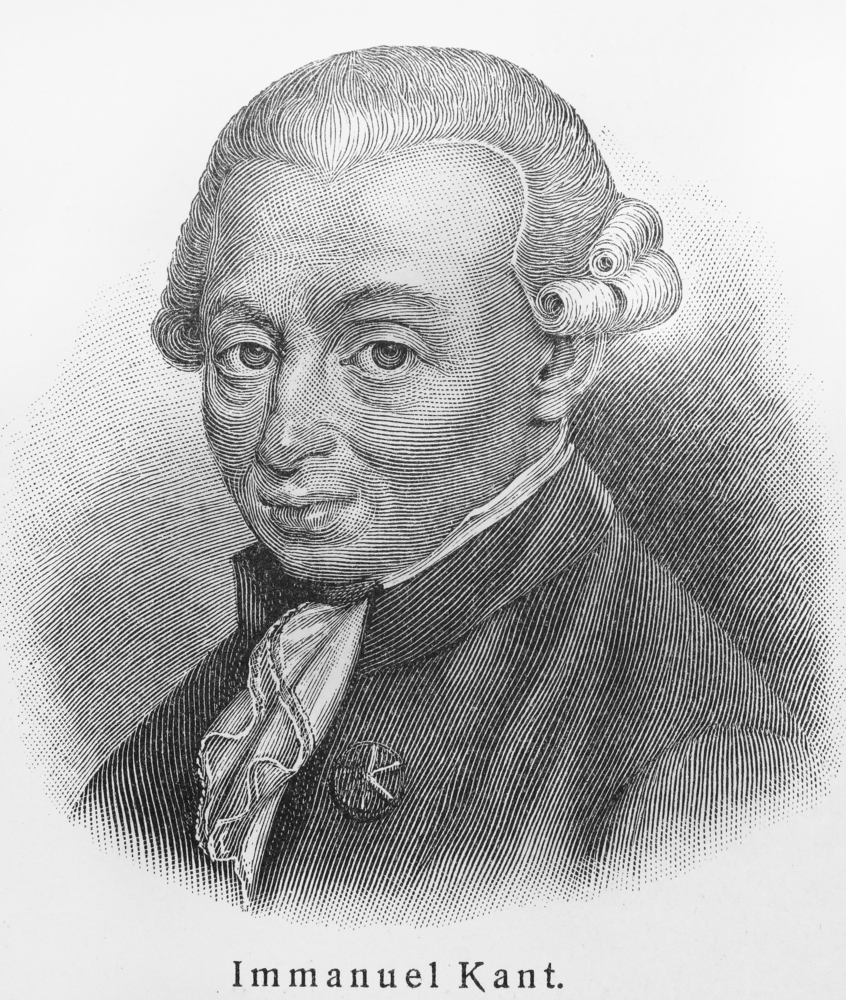
This is already the case for Kant (1724-1804):
- Kant, in [20] various writings and various places, advocated euthanasia for Judaism in a way that may have been only the metaphysical way of proclaiming « Death to the Jews ».
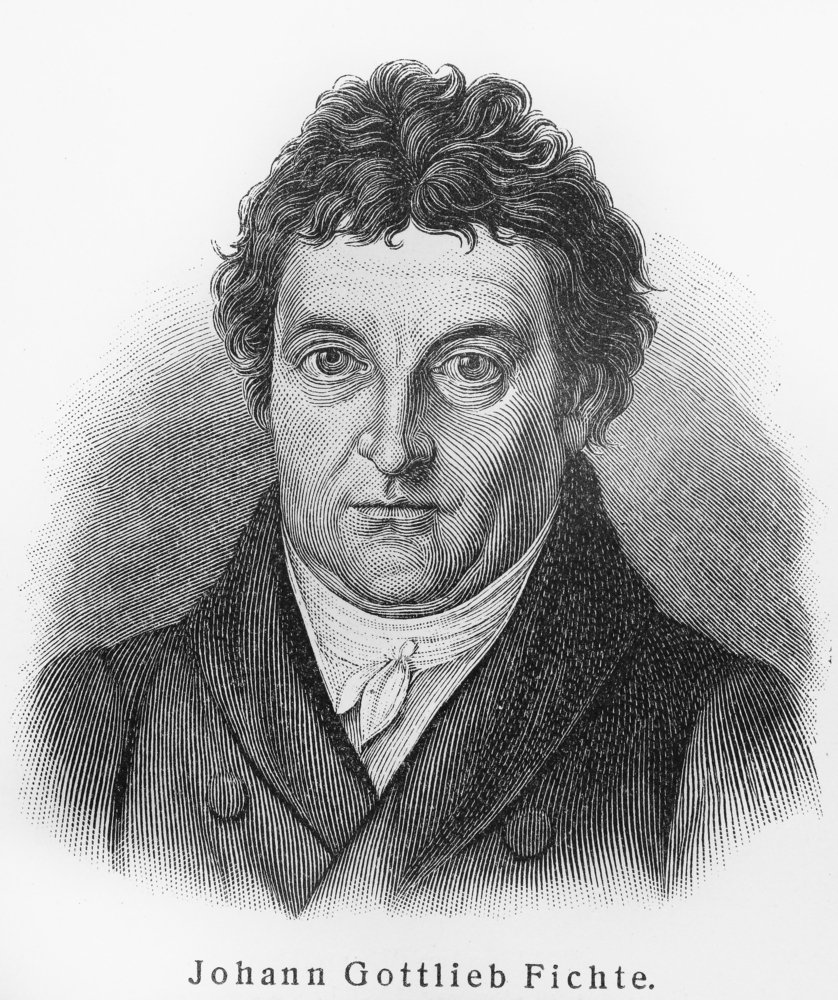
Fichte (1762-1814) declared in 1793:
- « To give them [21] (to the Jews) civil rights, this is only possible on one condition: to cut off their heads at all the same night and to give them a new one that no longer contains a single Jewish idea ».
Fichte [22] was the first to hypothesize an Aryan (and therefore non-Jewish) Christ. Only the Germans were fit, according to him, to collect « the grain of truth and life of the original Christianity » (not corrupted by the Jews and by Paul in particular).
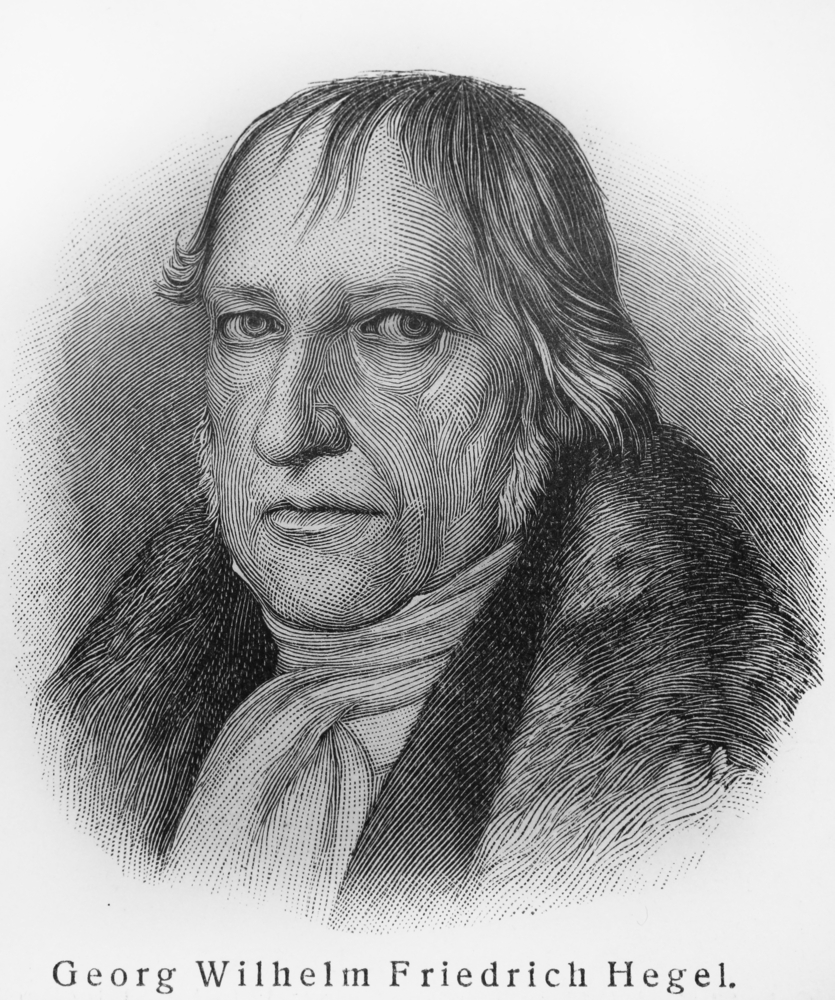
Hegel (1770-1831), who for his part dismissed the Jews from their election for the benefit of the Germans declared:
- Jesus’ attempt [23] to give the troupe of the Jews the consciousness of the Divine could only fail, because faith in the Divine can not resist in the mud.
Hegel’s disciples will be faithful to him in terms of anti-Semitism:
- This stubborn hostility (towards the Jews) [24], in the years 1830-1840, is not only the fact of the conservative circles, but also of the « Young Hegelians », atheists and radicals, Ludwig Feuerbach, Bruno Bauer and Karl Marx. Thus Feuerbach does not see in Judaism as egoism, materialism and … gluttony. Denying all spirituality and aesthetics to the religion of Moses, the author of the « Essence of Christianity » attributes to Judaism and its « Asian » destructive character the origin of all the evils of Christianity.
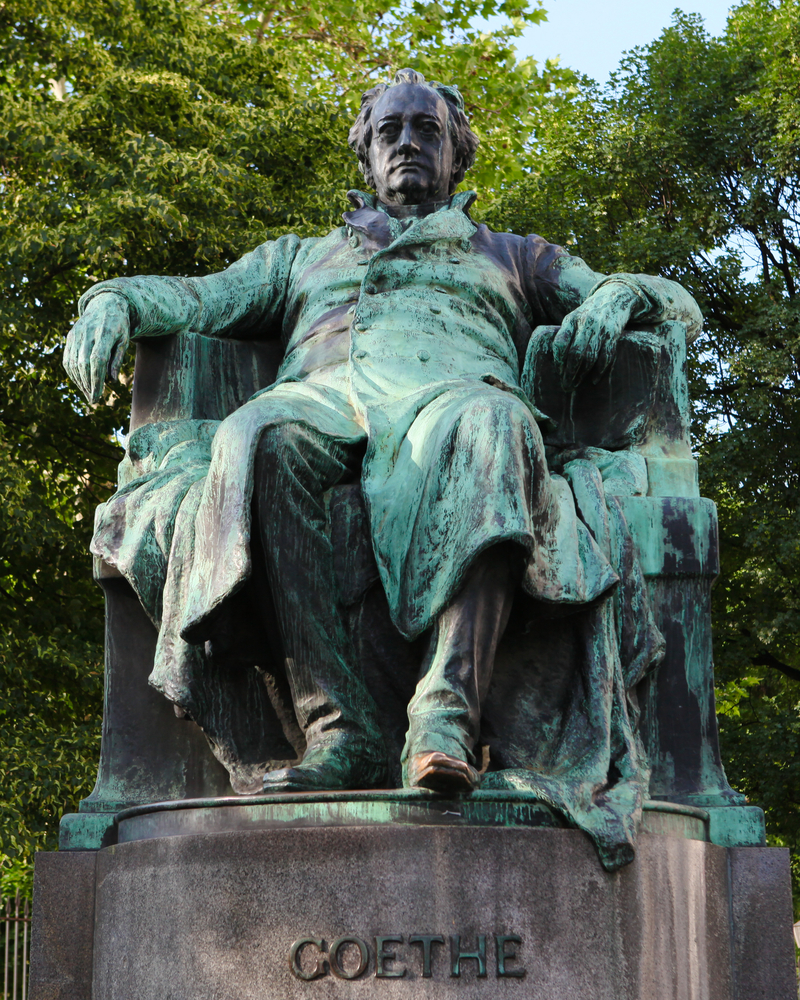
Goethe (1749-1832), for his part, could not admit (he and by extension the Germans) to come down from the same couple (Adam and Eve) as the one who gave birth to the Jews and the « Negroes »:
- It is true [25] that Scripture speaks of one human couple, created by God on the sixth day. But the learned men who noted the word of God, transmitted by the Bible, had first to deal with their chosen people, to whom we do not want to dispute in any way the honor of coming down from Adam. But we, as well as the Negroes and the Lapps, certainly have other ancestors: we will certainly agree that we differ from the true descendants of Adam in many ways, and that they exceed us in particular as regards ‘money.
Karl Marx when modeling the class struggle is targeting the bourgeois who has supplanted the aristocracy in the domination of other classes, mainly the proletariat born of the industrial revolution.
Like many Germans of Jewish origin in the nineteenth century, not only does Karl Marx not consider himself Jewish, but perhaps to better demonstrate this non-belonging, distils a virulent antisemitism, assimilating Jews and the bourgeoisie.
In his article on the « Jewish Question » published in 1843, he states:
- Let us [26] not seek the secret of the Jew in his religion, but seek the secret of religion in the real Jew. […] What in itself was the basis of the Jewish religion? The practical need, selfishness. The monotheism of the Jew is in reality the polytheism of the multiform need, a polytheism which makes even places of comfort an object of the divine law … Money is the jealous god of Israel, before whom no other god must subsist. Money degrades all the gods of man and turns them into commodities. Trafficking is the true god of the Jew. His god is only an illusory treat … what is contained in an abstract form in the Jewish religion, the contempt of theory, of art, of history, of man considered as his own goal, it is the real and conscious point of view, the virtue of the man of money.
And also :
- « The emancipation of the Jew [27], is the emancipation of the society of Judaism ». Or even more violently: « Jewish emancipation consists in emancipating humanity from Judaism ».
Kant, Fichte or Hegel [28] criticized Jews and Judaism within the framework of metaphysical systems that remained anchored in Lutheran theology, while progressively distancing themselves from it.
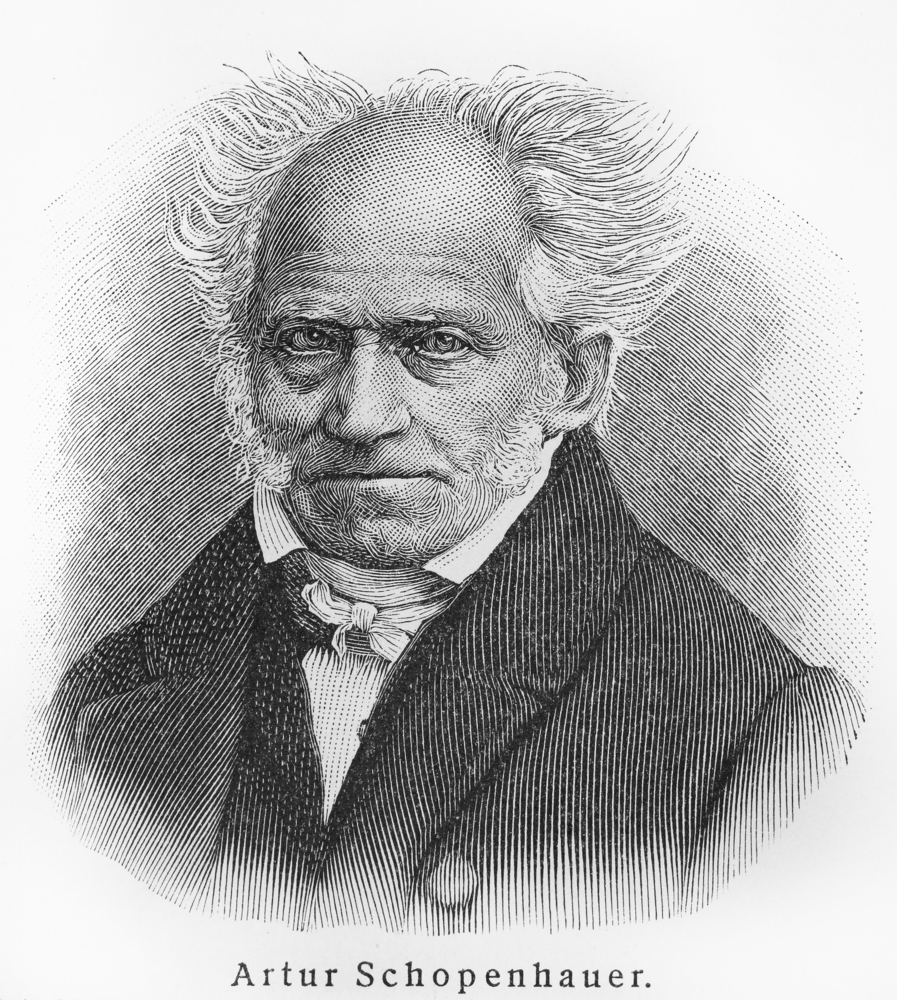
Schopenhauer (1788-1860), who broke the last moorings, joined the evangelical message to Buddhism. Moses being only a foreign and barbaric legislator or « guardian ». […] For Schopenhauer: « The Jews are the people chosen by their God, who is the God elected by his people, and it concerns no one but themselves and him. «
The new antisemitism developed from the Enlightenment and which is gradually developing in Europe and more particularly in the German zone of influence becomes a racial antisemitism that rejects both the Jews and « their » God.
Wagner’s anti-Semitism to this generation is only the result of a long racially-sounding antisemitic thought developed in Germany in response to the emancipation of the Jews and the place considered too important occupied by them in the economic world. , thoughts and artistic. Although largely taking advantage of the liberalities and support of the Jews in his success, especially Meyerbeer, Wagner could not admit that his success might owe anything to the Jews.
This development is unfortunately the prelude to the near-extinction of European Judaism in the twentieth century under the action of Nazism, supplemented by Stalinism, extreme adept of the principles developed by Marx.
These antisemitic discourses that we have just recorded and which are taking full power in this generation are therefore not harmless. they justify the anger expressed by the psalmist in the end of the psalm of this generation at once against the attacks on the God of Israel and against the people of Israel.
For the latter, the psalmist finds only God himself to witness the righteousness of the people of Israel against the unjustified attacks that are multiplying in this generation for the result that unfortunately we know:

- Did I not hate Your enemies, O Lord? With those who rise up against You, I quarrel.
- I hate them with utmost hatred; they have become my enemies.
- Search me out, O God, and know my heart; test me and know my thoughts.
- And see whether there is any vexatious way about me, and lead me in the way of the world.

[1] From: (led by) David Biale: « The cultures of the Jews ». Chapter of: « Urban Visibility and Biblical Visions ». (French: « Les cultures des Juifs ». Chapitre de : « Visibilité urbaine et visions bibliques » )
[2] (directed by) Theodore Zeldin: « History of the world from 1789 to 1918 ». Richard I. Cohen’s Chapter: « Victorian England ». (French: « Histoire du monde de 1789 à 1918 ». Chapitre: « L’Angleterre Victorienne ». (p. 267) )
[3] Renée Neher-Bernheim: « Jewish History of the Revolution to the State of Israel ». Chapter: « Towards a better life ». (French: « Histoire juive de la Révolution à l’Etat d’Israël ». Chapitre : « Vers un mieux-être ». (p. 334-335) ).
[4] As Renée Neher-Bernheim points out, this name is not satisfactory for the land of Israel. But it is the only usable before the creation of the state of Israel, although this name is the one given by Hadrian to punish the Jews after the revolt of Bar Kokhba thus trying to erase the ancestral memory of the Jewish land. . (See Renee Neher-Bernheim: « Jewish History of the Revolution in the State of Israel. » Chapter X, 356). This name already contains a denial of the attachment of this land to its people, the Jewish people. It is likely that those who use this terminology today do not really depart from Hadrian’s will.
[5] see: Jacob Katz: « Jews and Freemasons in Europe (1723-1939) ». (French: « Juifs et francs-maçons en Europe (1723-1939) »).
[6] Leon Poliakov: « History of anti-Semitism, 2 – the age of science ». (French: « Histoire de l’antisémitisme, 2 – l’âge de la science ». (p. 163- ) )
[7] Riccardo Calimani: « The Jewish Wandering ». Chapter: « Emancipation, flight, Zionism ». (French: « L’Errance juive ». Chapitre : « L’émancipation, la fuite, le sionisme ». (p. 475 à 478) )
[8] Darwin: « On the Origin of Species ». This excerpt is based on the French translation of Edmond Barbier (review by Daniel Becquemont), Flammarion edition. Chapter IV: « Natural selection ». (pp. 155/156).
[9] Darwin: « On the Origin of Species ». This excerpt is based on the French translation of Edmond Barbier (review by Daniel Becquemont), Flammarion edition. Chapter VI: « Difficulties of the theory« . (p. 231).
[10] Darwin: « On the Origin of Species ». This excerpt is based on the French translation of Edmond Barbier (review by Daniel Becquemont), Flammarion edition. Chapter XIV: « Summaries and Conclusions » (p. 547).
[11] Darwin: « On the Origin of Species ». This excerpt is based on the French translation of Edmond Barbier (review by Daniel Becquemont), Flammarion edition. Chapter XIV: « Summaries and Conclusions » (p. 563).
[12] Darwin: « On the Origin of Species ». This excerpt is based on the French translation of Edmond Barbier (review by Daniel Becquemont), Flammarion edition. Chapter VI: « Difficulties of the theory« . (p. 249).
[13] Darwin: « On the Origin of Species ». This excerpt is based on the French translation of Edmond Barbier (review by Daniel Becquemont), Flammarion edition. Chapter XI: « Geographical Distribution » (pp. 423 and 425).
[14] Darwin: « On the Origin of Species ». This excerpt is based on the French translation of Edmond Barbier (review by Daniel Becquemont), Flammarion edition. Chapter VII: « Instinct » (p. 269).
[15] Patrick Tort: « Darwin and the science of evolution ». (French: « Darwin et la science de l’évolution ». (p. 77 à 79) )
[16] Patrick Tort: « Darwin and Darwinism ». (French: « Darwin et Darwinisme ». (p. 68,69, puis 82,83) )
[17] Léon Poliakov: « History of antisemitism, the age of science ». (French: « Histoire de l’antisémitisme, l’âge de la science ». (p. 212-213, 227, 237 à 241) )
[19] Léon Poliakov: « History of antisemitism, the age of science ». This last quotation from Voltaire shows that denouncing slavery or its excesses does not necessarily mean that one is not racist. (French: « Histoire de l’antisémitisme, l’âge de la science ». (pp. 33 et 55) )
[20] Léon Poliakov: « History of antisemitism, the age of science ». (French: « Histoire de l’antisémitisme, l’âge de la science ». (p. 82)).
[21] Léon Poliakov: « History of antisemitism, the age of science ». (French: « Histoire de l’antisémitisme, l’âge de la science ». (p. 84)).
[22] See: Léon Poliakov: « History of antisemitism, the age of science ». (French: « Histoire de l’antisémitisme, l’âge de la science ». (p. 84) ).
[23] Léon Poliakov: « History of antisemitism, the age of science ». (French: « Histoire de l’antisémitisme, l’âge de la science ». (p. 86) ).
[24] Michel Abitbol : « Histoire des juifs, de la genèse à nos jours ». Chapitre : « Les chemins difficiles de la citoyenneté ». (p. 372)
[25] Léon Poliakov: « History of antisemitism, the age of science ». (French: « Histoire de l’antisémitisme, l’âge de la science ». (p. 168)).
[26] Léon Poliakov: « History of antisemitism, the age of science ». (French: « Histoire de l’antisémitisme, l’âge de la science ». (p. 233)).
[27] Michel Abitbol: « History of the Jews, from genesis to our days ». Chapter: « The difficult paths of citizenship ». (French: « Histoire des juifs, de la genèse à nos jours ». Chapitre : « Les chemins difficiles de la citoyenneté ». (p. 374) )
[28] According to: Leon Poliakov: « History of anti-Semitism, the age of science ». (French: « Histoire de l’antisémitisme, l’âge de la science ». (p. 265-266) ).

